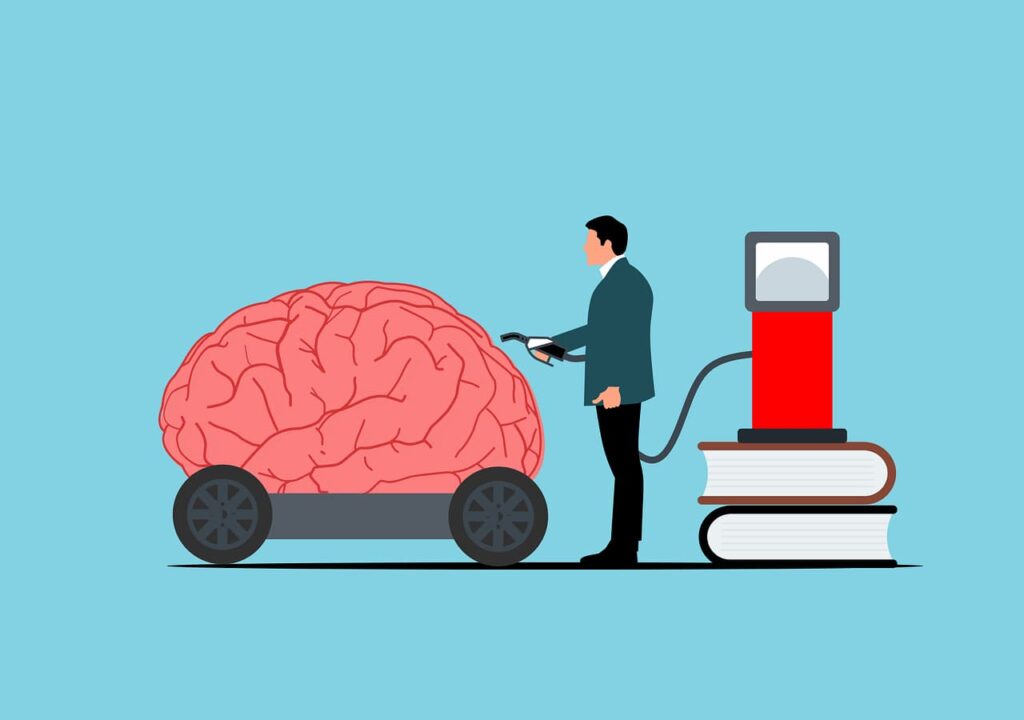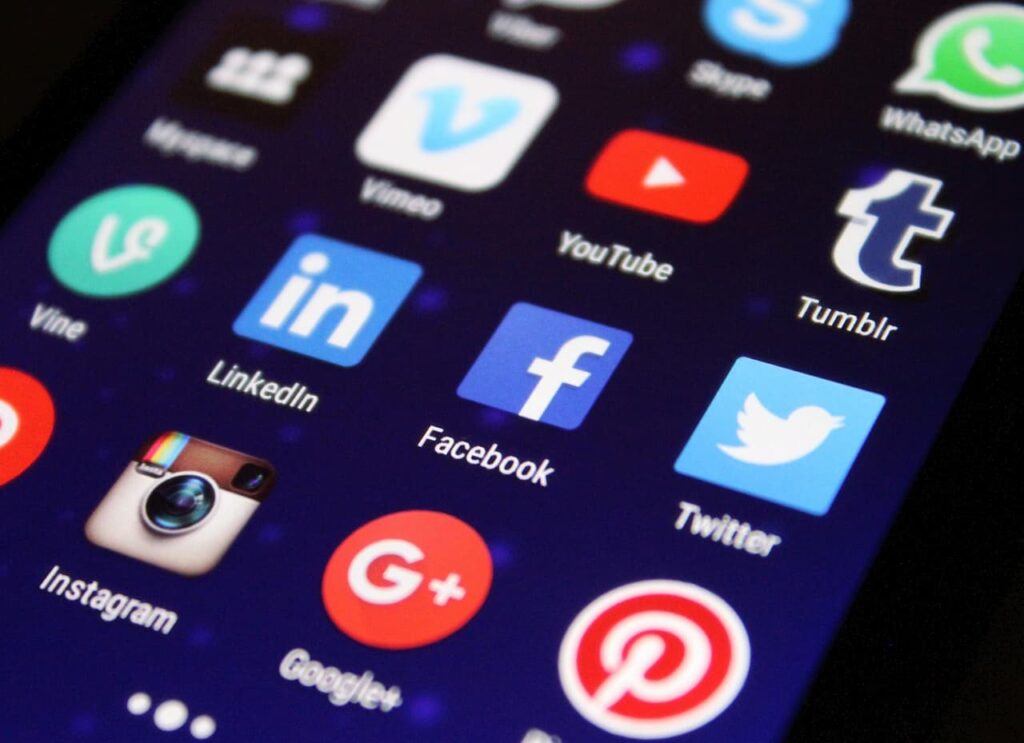Subscribe To Get Latest Updates!


How Reading Shapes Our Perspective
Reading has a unique power to shape how we see the world. When we dive into different books, whether they are novels, biographies, or even news articles, we expose ourselves to new ideas, experiences, and viewpoints. This process helps us understand and relate to people and situations that are different from our own.
In this article, we’ll explore how reading influences our perspective. We’ll look at how it can change the way we think about ourselves and others, foster empathy, and broaden our understanding of the world. By the end, you’ll see how the books you choose can open up new ways of thinking and enrich your view of life.
Table of Contents
1. Introduction
Perspective refers to the unique way we view and interpret the world, including our thoughts, beliefs, and attitudes. It encompasses how we understand people, events, and situations based on our experiences, knowledge, and emotions.
When we talk about how reading shapes our perspective, we mean how engaging with different books, stories, and ideas can influence or expand the way we see the world. Reading exposes us to new viewpoints, cultures, and experiences, which can challenge or broaden our own understanding. It helps us develop empathy, critical thinking, and a more nuanced view of life by offering insights that may be outside our direct experience.
In this sense, reading has the power to shift or refine our mental framework, encouraging us to see things from various angles and make more informed or compassionate judgments.
2. Reading and Cognitive Development

Reading plays a crucial role in cognitive development, which refers to how we acquire knowledge, think, reason, solve problems, and understand the world around us. Cognitive development involves improving intellectual abilities such as attention, memory, language, and critical thinking. Reading not only enhances these cognitive abilities but also influences how we see the world, form opinions, and make decisions. Here’s how reading supports cognitive development and shapes our perspectives.
Enhances Critical Thinking and Analytical Skills
Reading encourages critical thinking, a skill essential for evaluating information, making decisions, and forming reasoned opinions. When you read, especially complex or thought-provoking texts, you are often required to analyze, interpret, and question what you are reading. This builds your ability to:
- Compare different viewpoints: Reading diverse materials allows you to examine various perspectives, helping you become more open-minded and better at understanding multiple sides of an issue.
- Draw connections: Whether it’s fiction, non-fiction, or academic texts, reading helps you make connections between ideas, events, or characters, which strengthens your analytical thinking.
- Form independent opinions: Through exposure to different arguments, concepts, or ideologies, reading empowers you to assess information and form your own judgments, rather than accepting ideas at face value.
For example, reading books on history or philosophy can challenge your existing beliefs and encourage you to think more critically about current events or societal norms, thus shaping your perspective.
Improves Problem-Solving Skills
Reading sharpens your problem-solving skills by engaging your brain in the process of decoding information, identifying patterns, and thinking through challenges presented in the material. This is particularly true in genres such as mystery novels, science fiction, or case studies, where readers are prompted to solve puzzles, think ahead, or predict outcomes.
Complex plots in fiction: Fiction often presents characters in difficult situations, requiring you to think about how they might resolve their conflicts or challenges. This encourages you to think creatively and build problem-solving abilities that apply to real-life situations.
Non-fiction problem-solving: In non-fiction, such as self-help or business books, you are exposed to practical methods for addressing challenges, which can improve your own approaches to problem-solving in work, school, or personal life.
The more you read, the more your cognitive ability to solve problems is developed, which in turn shapes how you approach challenges in your own life.
Builds Empathy and Social Understanding
Reading, particularly fiction, can enhance empathy by allowing you to experience the lives, emotions, and thoughts of characters different from yourself. Empathy is key to how we understand and relate to others in real life, and reading can shape how we view social issues, relationships, and human behavior.
Understanding diverse experiences: When you read about characters from different backgrounds, cultures, or with varying experiences, you gain insight into their emotions, struggles, and motivations. This can lead to a deeper understanding of people in the real world and foster compassion and empathy.
Perspective-taking: As you engage with characters’ inner thoughts and feelings, you practice putting yourself in their shoes, which improves your ability to understand others’ perspectives in real life, even when their views differ from your own.
This ability to relate to and understand others plays a significant role in shaping your social perspective and broadening your worldview.
Increases Knowledge and Cognitive Flexibility
Reading expands your knowledge base, exposing you to a vast range of information, ideas, and concepts. This cognitive flexibility, or the ability to adapt your thinking in response to new information, is crucial for shaping your perspective.
Broadening horizons: Whether you’re reading about science, history, or different cultures, you gain insights into how the world works and the complexities of life. This newfound knowledge can reshape your opinions and beliefs.
Adapting viewpoints: Exposure to new ideas through reading encourages cognitive flexibility, enabling you to adapt and change your perspective as you learn more. For instance, reading about environmental issues might inspire you to rethink your personal habits and lifestyle.
Reading constantly exposes you to new information that challenges or deepens your understanding, fostering intellectual growth and shaping your perspectives on a wide range of topics.
Improves Memory and Cognitive Retention
Reading actively engages your memory, especially when you follow detailed plots or arguments over time. Strong memory skills enhance your ability to retain information, which is vital for understanding and processing complex ideas that shape your perspective.
Retention of information: Regular reading helps strengthen your ability to remember details, arguments, and facts, which allows you to form well-rounded opinions on various topics.
Understanding connections: Memory plays a critical role in making connections between different ideas you’ve read. For example, recalling information from previous books can help you understand new material in a deeper context, enhancing your perspective.
As you read more, you improve your ability to recall and apply information to your thinking, making your perspective more informed and comprehensive.
Enhances Language Skills and Communication
Reading helps to expand your vocabulary, improve your understanding of language structure, and refine your ability to communicate effectively. Language is a powerful tool for shaping thought, and as you become more skilled in using language, your ability to articulate your perspective improves.
Improved vocabulary: Exposure to new words and phrases through reading enhances your ability to express complex ideas more clearly and persuasively.
Better comprehension: Reading a wide range of material sharpens your ability to comprehend subtle meanings, metaphors, and nuanced arguments, all of which shape how you interpret information.
Clear communication: Improved language skills help you express your thoughts and opinions more clearly, allowing you to better share your perspective with others.
Effective communication is key to how you convey your perspective, and reading enhances your ability to communicate ideas in a structured, thoughtful way.
3. Empathy and Emotional Growth

Empathy and emotional growth are essential components of personal development that are deeply influenced by reading. Reading, especially fiction and narrative non-fiction, has the unique ability to help us understand the emotions, thoughts, and experiences of others. This in turn fosters greater emotional intelligence, empathy, and personal emotional growth. By immersing ourselves in the stories of diverse characters and viewpoints, reading challenges us to think beyond our own experiences, making us more compassionate and emotionally mature. Below is a detailed explanation of how reading fosters empathy and emotional growth.
Understanding Diverse Perspectives
Reading exposes us to characters and situations that are often very different from our own lives, helping us to see the world from another person’s perspective. This process is a key element in building empathy, as it requires us to mentally and emotionally put ourselves in someone else’s shoes.
Fictional characters: By following the journey of a fictional character, readers experience their joys, struggles, and emotions firsthand. Whether it’s a character dealing with loss, love, discrimination, or personal growth, reading allows us to experience their emotions as if they were our own. This deepens our understanding of what others might feel in similar real-life situations.
Non-fiction narratives: Books such as memoirs, biographies, or historical accounts also offer a window into the lives of real people, providing insight into their struggles, achievements, and emotions. These accounts help humanize people who are different from us in terms of culture, race, or background, encouraging us to develop compassion for their experiences.
By engaging with these diverse perspectives, readers expand their emotional range and their ability to relate to people in the real world who may have different experiences or worldviews.
Emotional Resonance and Reflection
Reading often provokes deep emotional responses, prompting readers to reflect on their own emotions, relationships, and life experiences. This reflective process encourages emotional growth, helping individuals to better understand their own feelings and reactions to situations.
Relating to characters: Many readers find themselves identifying with a character’s struggles or emotional journey. For example, a story about overcoming adversity might resonate with a reader who has faced similar challenges. This connection not only enhances the emotional impact of the story but also allows the reader to reflect on their own emotional experiences.
Processing emotions: Books provide a safe space to explore complex emotions like grief, anger, love, or fear. As readers experience these emotions through the lens of characters, they can better process and understand similar feelings in their own lives. This can lead to emotional healing and growth, particularly when reading about characters who overcome obstacles or find resolution.
Through these emotional resonances, reading helps shape our emotional intelligence and strengthens our ability to manage and express our own emotions.
Fostering Compassion and Kindness
Reading fosters compassion, an essential part of empathy, by allowing us to experience the inner lives of others. When we read about the difficulties, pain, and joy that others go through, we become more compassionate in our everyday interactions.
Relating to human struggles: Many stories revolve around universal human experiences such as love, loss, family, and ambition. By reading about these shared experiences, we become more attuned to the fact that everyone around us faces their own struggles. This awareness can translate into more compassionate behavior in our own lives, making us kinder and more considerate of others.
Understanding vulnerability: Books often explore the vulnerability of characters in ways that real life might not always reveal. For example, a novel may delve into a character’s inner fears, insecurities, or doubts—emotions that real people might hide. Recognizing this vulnerability in fictional characters helps readers develop a more nuanced understanding of the hidden emotions people might be dealing with in real life, fostering greater empathy.
Through reading, our understanding of the human condition deepens, encouraging us to respond to others with greater kindness and empathy.
Challenging Biases and Expanding Worldviews
Reading can challenge our pre-existing beliefs and biases by introducing us to new ideas, cultures, and perspectives that we may not encounter in our everyday lives. This process is critical to emotional growth, as it encourages open-mindedness and reduces prejudice.
Cultural empathy: Reading about characters from different cultures, ethnicities, or social backgrounds expands our awareness of global diversity. For example, reading about the struggles of marginalized groups or different cultural traditions can help readers develop empathy for people whose lives and experiences are vastly different from their own.
Breaking stereotypes: By offering nuanced portrayals of people and situations, books can help break down harmful stereotypes and challenge narrow thinking. Reading complex characters that defy typical stereotypes encourages readers to rethink their own biases and assumptions about certain groups or individuals.
This process of challenging biases helps readers develop a more inclusive and empathetic perspective, allowing for emotional growth through greater understanding of the world’s diversity.
Building Emotional Resilience
Reading can help build emotional resilience by exposing readers to stories of overcoming adversity, navigating difficult relationships, or coping with loss. These narratives offer valuable lessons in emotional endurance and personal growth.
Coping with challenges: Many novels, particularly those with strong emotional arcs, show characters facing and overcoming hardships. Witnessing how these characters cope with difficult emotions or challenges can inspire readers to develop their own emotional resilience in real life.
Learning from failure and recovery: Books often explore themes of failure, recovery, and personal growth, showing that setbacks are a natural part of life. Readers can draw strength from these stories, learning how to navigate their own emotional challenges with greater resilience.
This emotional resilience developed through reading helps individuals handle real-life difficulties more effectively, making them emotionally stronger and more adaptable.
Developing Emotional Intelligence
Emotional intelligence refers to the ability to recognize, understand, and manage both your own emotions and the emotions of others. Reading plays a significant role in developing emotional intelligence, which in turn shapes how we interact with others and perceive the world.
Identifying emotions: Through the emotional experiences of characters, readers learn to better identify and understand a wide range of emotions. This ability to recognize emotions in others is a key aspect of emotional intelligence and empathy.
Managing emotions: As readers witness characters navigating emotional highs and lows, they also learn strategies for managing their own emotions in challenging situations. This might include understanding how to process grief, resolve conflicts, or communicate feelings effectively.
The growth of emotional intelligence through reading helps shape how we view interpersonal relationships, conflicts, and emotional situations, making us more thoughtful, empathetic individuals.
Empathy and Social Change
Empathy fostered through reading doesn’t just shape personal relationships—it can also lead to broader social awareness and a desire for positive social change. Many books highlight social injustices, inequalities, and human rights issues, inspiring readers to take action or support causes that promote fairness and compassion.
Social justice themes: Many literary works, particularly those focused on social issues, expose readers to the harsh realities faced by certain groups or communities. Reading about these struggles can ignite empathy and inspire a deeper understanding of societal problems like racism, poverty, or inequality.
Encouraging activism: Stories about injustice or human rights violations can stir readers’ emotions, prompting them to think critically about how they can contribute to positive social change. Whether it’s becoming more aware of societal issues or participating in activism, empathy developed through reading can inspire real-world actions that promote equality and justice.
Empathy born from reading not only shapes individual perspectives but also contributes to building more compassionate and just societies.
Reading allows us to step into the lives of others, fostering deep emotional connections and understanding that extend beyond our own experiences. By enhancing our ability to empathize, reflect on our own emotions, and challenge biases, reading shapes not only how we view ourselves but also how we interact with the world around us. Ultimately, reading helps build a more compassionate, emotionally intelligent, and socially aware perspective, enriching both our personal and communal lives.
4. Cultural Awareness and Tolerance

Reading plays a powerful role in shaping our understanding of the world, particularly when it comes to cultural awareness and tolerance. Through books, readers are transported into different cultural contexts, allowing them to experience unfamiliar traditions, beliefs, and social norms. This exposure broadens perspectives and fosters a deeper sense of empathy and respect for people from diverse backgrounds. Below is a detailed explanation of how reading promotes cultural awareness and tolerance, ultimately shaping our worldviews in a more inclusive and understanding way.
Exposure to Diverse Cultures and Traditions
Books offer a window into cultures that we might not otherwise encounter in our daily lives. Whether through fiction or non-fiction, stories provide readers with the opportunity to explore the traditions, values, and social practices of people from different parts of the world.
Fictional stories set in different cultures: When we read novels set in different cultural contexts, such as African, Asian, Middle Eastern, or Indigenous settings, we gain insights into the customs and lifestyles of those societies. These stories introduce readers to the foods, festivals, family dynamics, religious practices, and societal structures that define a particular culture.
Memoirs and biographies: Non-fiction works, especially memoirs and biographies, offer a firsthand account of an individual’s experience within a particular cultural framework. These narratives help readers gain a deeper understanding of what it’s like to grow up or live in a society with different values, expectations, or norms.
Through exposure to these different cultural contexts, reading encourages us to appreciate the richness of global diversity. It allows readers to move beyond stereotypes and assumptions, developing a more nuanced understanding of the complexity and beauty of different cultures.
Breaking Down Stereotypes and Misconceptions
Many books challenge cultural stereotypes and misconceptions, offering more realistic and multifaceted portrayals of people from different backgrounds. By reading stories that highlight the diversity within a culture, we come to see that individuals cannot be reduced to a single narrative or set of traits.
Challenging stereotypes: Stereotypes often arise from limited or one-dimensional representations of cultures. Books that present complex, multidimensional characters from different ethnic or cultural groups help dismantle these oversimplified views. For example, a novel featuring a Muslim protagonist navigating various personal and cultural challenges can provide a more layered and humanized perspective of Muslim identity, rather than reinforcing common stereotypes.
Humanizing ‘the other’: Literature helps humanize people who may be viewed as “the other” by giving voice to their experiences and struggles. By reading stories from the perspectives of marginalized or misunderstood groups, readers begin to see the common humanity that connects us all, regardless of cultural or ethnic differences.
By breaking down stereotypes, reading fosters a deeper understanding of different groups and promotes tolerance for people who may have been misunderstood or misrepresented in mainstream media.
Developing Empathy for Cross-Cultural Experiences
Reading about the experiences of people from different cultures can help develop empathy for the challenges they face, especially when those experiences involve issues like immigration, discrimination, or cultural identity.
Understanding the immigrant experience: Many books tell the stories of immigrants who face the difficulties of adapting to a new country and culture. These stories often highlight the emotional and psychological struggles of leaving behind one’s homeland, dealing with cultural dislocation, and facing prejudice in a foreign society. Readers gain empathy for the emotional toll of immigration and are better able to appreciate the resilience and strength it requires.
Relating to cultural identity struggles: Books that focus on cultural identity can help readers empathize with characters who struggle to balance their heritage with the pressures of assimilation. This is particularly true for narratives about second-generation immigrants or individuals living in multicultural societies. By exploring these identity struggles, readers become more sensitive to the complexities of navigating multiple cultural identities.
Through these stories, reading cultivates a sense of empathy and emotional understanding for individuals navigating cross-cultural experiences. This helps readers become more tolerant and respectful of the unique challenges faced by people from diverse backgrounds.
Learning About Global Issues
Books often address global issues such as poverty, conflict, inequality, and human rights violations from the perspectives of those affected by these problems. This fosters cultural awareness by making readers more cognizant of the socio-political realities faced by different communities around the world.
Understanding global conflicts: Many books, both fiction and non-fiction, explore the impact of war, colonization, or political unrest on different societies. By reading about how these issues affect individuals and communities in different cultural contexts, readers gain a deeper understanding of the root causes and consequences of these conflicts. For instance, reading a novel set in a war-torn country might help a reader better understand the personal toll of that conflict, humanizing the people behind the headlines.
Highlighting inequality and social justice: Books that focus on issues of inequality, such as racism, gender inequality, or economic disparity, often center around characters or real-life individuals who belong to marginalized or oppressed groups. These stories can raise awareness of systemic issues affecting these communities, encouraging readers to confront their own biases and recognize the importance of social justice.
By shedding light on these global issues, reading promotes greater cultural awareness and encourages readers to become more globally conscious citizens.
Fostering Tolerance and Open-Mindedness
Reading encourages tolerance by helping readers develop an open-minded attitude toward cultures, beliefs, and lifestyles that are different from their own. The more readers engage with diverse voices and experiences, the more they learn to appreciate the complexity of the world and the importance of accepting differences.
Challenging ethnocentrism: Ethnocentrism-the belief that one’s own culture is superior to others can be reduced through exposure to books that highlight the values, achievements, and contributions of different cultures. When readers see the richness of other cultures through literature, they are less likely to hold a narrow or judgmental view of those who are different from them.
Encouraging dialogue and curiosity: Books that present different cultural perspectives often spark curiosity and inspire readers to learn more about those cultures. This intellectual curiosity fosters a sense of openness and a willingness to engage in cross-cultural dialogue, rather than relying on preconceived notions or cultural biases.
Through reading, individuals become more open-minded and tolerant, realizing that cultural differences are something to be celebrated rather than feared or rejected.
Building Global Citizenship
In an increasingly interconnected world, being a global citizen means understanding and respecting the diverse cultures, histories, and experiences of people around the globe. Reading plays a crucial role in developing this sense of global citizenship by expanding readers’ awareness of the broader world.
Learning about global history and heritage: Books that delve into the histories of different cultures help readers appreciate the diverse contributions of various societies to the world. Understanding these histories fosters a sense of shared humanity and respect for the global community.
Promoting cross-cultural respect: Reading about the traditions, beliefs, and practices of different cultures encourages readers to respect those differences. It also helps readers recognize that cultural diversity enriches society, making them more likely to support policies and initiatives that promote inclusivity and respect for all cultures.
By fostering cultural awareness and tolerance, reading helps build a generation of global citizens who are better equipped to navigate the complexities of an increasingly multicultural world.
Reading offers the opportunity to explore diverse cultures, challenge stereotypes, and build empathy for people from different backgrounds. Through exposure to different traditions, experiences, and social issues, reading encourages open-mindedness, tolerance, and a deeper appreciation for the richness of human diversity. Ultimately, it helps readers become more globally conscious, empathetic individuals who are better equipped to engage with the world in a meaningful and respectful way.
5. Challenging Worldviews

Reading has the power to challenge and expand our worldviews-the mental frameworks we use to understand the world around us. Our worldview is shaped by our upbringing, culture, education, and experiences, and it influences how we interpret new information and form opinions. However, reading exposes us to diverse ideas, beliefs, and perspectives that can challenge these pre-existing views. Whether it’s a novel, a philosophical essay, or a historical account, books invite readers to question assumptions, broaden their understanding, and think critically about their place in the world. In this context, reading becomes a transformative tool that reshapes our perspectives in profound ways.
Here’s how reading challenges worldviews and contributes to personal growth:
Exposure to Unfamiliar Ideas and Perspectives
One of the most significant ways reading challenges our worldview is by introducing us to ideas and perspectives that differ from our own. Through books, we encounter new ways of thinking about issues such as morality, politics, religion, and social norms.
Expanding intellectual horizons: Fiction, non-fiction, and academic texts often present arguments, viewpoints, and scenarios that are outside of our personal experience. For example, reading a novel from another cultural perspective or an essay on a political philosophy you disagree with can push you to reflect on your own beliefs. These new ideas encourage you to reconsider what you know and prompt critical thinking.
Shifting societal views: Books that focus on controversial or taboo topics often challenge conventional wisdom. Authors like George Orwell (in 1984) or Margaret Atwood (in The Handmaid’s Tale) use dystopian fiction to critique authoritarianism and sexism, urging readers to think critically about real-world social and political systems. By engaging with these critiques, readers may find their own societal views evolving or being questioned.
Reading broadens our understanding of what’s possible and encourages intellectual humility, showing us that our current worldview is only one of many ways to interpret the world.
Questioning Long-Held Beliefs
Many of our deeply held beliefs, whether they are religious, political, or moral, are shaped by our upbringing and environment. Reading allows us to step outside of these influences and consider alternative perspectives, leading to a more nuanced understanding of complex issues.
Challenging belief systems: Books that explore philosophical or ethical dilemmas often push readers to confront the complexities of human existence. Works by existentialist philosophers like Jean-Paul Sartre or novels like Crime and Punishment by Fyodor Dostoevsky can make readers question their beliefs about free will, morality, and justice. These intellectual challenges force readers to reassess their values and think more critically about why they hold certain beliefs.
Broadening religious or spiritual views: Religious or spiritual texts from different traditions can help readers examine their own faith in a new light. Reading sacred texts from other cultures, such as the Bhagavad Gita, the Quran, or Buddhist teachings, may provide insights that complement or challenge the reader’s current spiritual beliefs. This process fosters a more open and inquisitive approach to religious understanding.
Through exposure to alternative viewpoints and philosophical debates, reading invites us to reflect on and, at times, reconsider the beliefs we’ve taken for granted.
Building Empathy Through Complex Characters and Narratives
Reading fiction, in particular, allows us to step into the shoes of characters with vastly different lives and perspectives. By inhabiting the minds of complex, morally ambiguous, or culturally different characters, readers develop a deeper empathy and understanding for viewpoints that they might not encounter in their daily lives.
Seeing the world through different lenses: When readers follow the internal struggles and moral dilemmas of characters in novels, they begin to understand the motivations, fears, and hopes that drive people from diverse backgrounds. For instance, reading Harper Lee’s To Kill a Mockingbird offers insight into racial injustice in the American South, while The Kite Runner by Khaled Hosseini opens a window into the experiences of Afghans during political turmoil. These narratives can shift how readers perceive issues like race, privilege, and justice.
Exploring moral ambiguity: Many literary works present morally complex situations where there are no clear right or wrong answers. Engaging with such stories can challenge a reader’s black-and-white thinking, encouraging them to embrace the grey areas of life. Stories that present conflicting values, such as The Road by Cormac McCarthy, make readers question what they would do in similar situations, pushing them to reevaluate their ethical frameworks.
By humanizing individuals and situations that might otherwise seem foreign or distant, reading fosters empathy and challenges simplistic or rigid views of the world.
Challenging Political and Social Ideologies
Books often serve as a platform for critiquing or satirizing political systems, social structures, and ideologies. Reading such works can prompt individuals to question the status quo and reconsider their stance on various issues.
Critiquing political systems: Dystopian literature, such as Orwell’s 1984 or Aldous Huxley’s Brave New World, provides a sharp critique of totalitarian regimes, surveillance, and loss of personal freedoms. These works force readers to reflect on their own political systems and ideologies, questioning whether certain policies or practices might lead to the same dystopian outcomes.
Addressing social justice issues: Many books shine a light on systemic inequalities, such as racism, gender inequality, and economic disparity. Works like The Color Purple by Alice Walker or The New Jim Crow by Michelle Alexander expose readers to the experiences of marginalized groups, often challenging preconceived notions about privilege and power dynamics. These readings can shift a reader’s understanding of social justice issues and prompt them to advocate for change.
Through such critiques, reading encourages individuals to question dominant political and social ideologies, pushing them to think more critically about the world they live in.
Promoting Open-Mindedness and Intellectual Flexibility
As readers are exposed to new ideas and perspectives, they develop greater intellectual flexibility and open-mindedness. Reading trains the mind to consider multiple viewpoints and weigh different arguments, fostering a more thoughtful and less rigid approach to thinking.
Developing critical thinking: Engaging with books that present complex ideas or multiple perspectives trains readers to think critically. Rather than accepting information at face value, readers learn to evaluate arguments, question assumptions, and consider alternative viewpoints. This intellectual flexibility helps individuals navigate a world where conflicting information and perspectives are common.
Encouraging lifelong learning: By challenging our worldviews, reading also encourages intellectual curiosity and a willingness to continue learning. Readers who regularly engage with challenging or thought-provoking material often become more open to new experiences and ideas. This openness fosters personal growth and a deeper appreciation for the diversity of human thought.
The intellectual flexibility gained through reading makes individuals more adaptable and better equipped to engage in meaningful discussions about complex topics.
Reading has the unique ability to challenge and reshape our worldviews by exposing us to unfamiliar ideas, pushing us to question long-held beliefs, and encouraging empathy for different perspectives. Whether through fiction or non-fiction, books invite us to step outside our intellectual comfort zones and consider new ways of thinking about ourselves and the world around us. By fostering open-mindedness, empathy, and critical thinking, reading plays a crucial role in expanding our understanding of the world and helping us become more thoughtful and engaged individuals. Through this process, reading becomes not just a source of knowledge, but a tool for personal and intellectual transformation.
6. The Role of Nonfiction in Shaping Perspective

Nonfiction plays a powerful and transformative role in shaping our perspective by presenting factual, researched, and often deeply analytical content. While fiction engages the imagination and often taps into emotional and moral aspects of understanding, nonfiction directly informs, educates, and challenges the reader’s worldview through real-life experiences, evidence-based arguments, and exploration of factual events.
Here’s a detailed explanation of how nonfiction influences our perspectives:
Expanding Knowledge and Understanding
Nonfiction books, articles, and essays introduce readers to a vast array of topics, from history and science to politics and culture. By presenting well-researched information and real-world examples, nonfiction helps readers build a stronger foundation of knowledge.
In-depth learning: Nonfiction provides detailed explanations of concepts and topics that are crucial for understanding the world around us. For example, books like Sapiens by Yuval Noah Harari delve into the history of humankind, giving readers insight into how civilizations have developed and the factors that shape our current societies. Such in-depth learning allows readers to see the bigger picture and to appreciate the complexities of history, politics, economics, and more.
Factual basis for opinions: Nonfiction helps readers ground their opinions in facts and research. Instead of relying on assumptions or incomplete information, nonfiction provides a solid base for making informed decisions and forming opinions on topics like climate change, social justice, and public policy. Works such as The New Jim Crow by Michelle Alexander or An Inconvenient Truth by Al Gore use facts and research to present compelling arguments, which can shift readers’ perspectives on pressing social and environmental issues.
Through this expanded knowledge, readers gain a more comprehensive understanding of the world, allowing them to form well-rounded perspectives that are based on real evidence rather than speculation.
Challenging Existing Beliefs
Nonfiction has the potential to challenge deeply held beliefs by providing alternative perspectives and exposing readers to new ways of thinking. Books that explore topics such as politics, religion, science, or ethics often present arguments that may contradict what readers have previously believed, encouraging them to re-examine their views.
Presenting evidence-based arguments: Many nonfiction works focus on presenting well-supported arguments on controversial topics. For example, books like Why We Sleep by Matthew Walker challenge modern assumptions about sleep habits and health, revealing how deeply the lack of rest can affect our lives. Similarly, Guns, Germs, and Steel by Jared Diamond presents an alternative view of history that challenges conventional narratives about the development of civilizations.
Reevaluating biases and assumptions: Nonfiction also invites readers to confront their own biases. Books on social issues, like White Fragility by Robin DiAngelo, encourage readers to reflect on their role in perpetuating racial inequalities. By presenting evidence and arguments that force readers to critically examine their own beliefs, nonfiction can lead to personal growth and a more nuanced understanding of the world.
Through this process of questioning and reflection, nonfiction empowers readers to develop more flexible, open-minded perspectives, allowing them to adapt and evolve their beliefs over time.
Enhancing Critical Thinking Skills
Nonfiction often presents complex arguments, data, and case studies that require readers to engage in critical thinking. This process not only helps in understanding the material but also enhances the reader’s ability to analyze information, draw connections, and form well-reasoned opinions.
Analyzing arguments and evidence: Nonfiction, especially academic and journalistic works, encourages readers to critically evaluate the strength of an author’s arguments. For example, books like Freakonomics by Steven D. Levitt and Stephen J. Dubner challenge readers to think critically about economics and social behavior, presenting data and case studies that encourage a deeper analysis of cause-and-effect relationships.
Questioning sources of information: Engaging with nonfiction also helps readers develop skepticism about the reliability of information. Nonfiction exposes readers to different methodologies of research and reporting, teaching them to question the credibility of sources and to differentiate between well-supported arguments and those that rely on bias or faulty logic.
By fostering critical thinking, nonfiction empowers readers to navigate complex topics, enabling them to form well-informed perspectives and make better decisions in their personal, academic, and professional lives.
Exploring Real-World Experiences and Diverse Voices
Nonfiction often captures the real-life experiences of people from different backgrounds, cultures, and walks of life. This exposure helps readers develop a more inclusive and empathetic worldview, as they gain insight into the challenges, triumphs, and daily realities of others.
Memoirs and autobiographies: Books like Becoming by Michelle Obama or The Glass Castle by Jeannette Walls offer readers personal stories that provide a deeper understanding of the challenges individuals face in different cultural, political, and socioeconomic contexts. These works invite readers to step into the shoes of others, encouraging empathy and emotional connection.
Documenting historical events: Nonfiction that focuses on historical events, such as The Diary of Anne Frank or Unbroken by Laura Hillenbrand, helps readers understand how global events have shaped individuals and societies. These accounts provide context for contemporary issues and help readers form a deeper connection with the past, shaping how they view current social, political, and cultural issues.
By exposing readers to diverse voices and real-world experiences, nonfiction fosters empathy, tolerance, and a more inclusive perspective on humanity.
Providing Frameworks for Understanding the World
Nonfiction often presents frameworks and models that help readers understand the world more effectively. These frameworks, whether theoretical, scientific, or philosophical, provide tools for interpreting and navigating complex systems and issues.
Scientific and philosophical frameworks: Books like A Brief History of Time by Stephen Hawking or The Selfish Gene by Richard Dawkins introduce readers to scientific concepts and theories that change how they understand the natural world and human behavior. By exploring these frameworks, readers develop a more informed and rational perspective on topics such as evolution, the universe, and human nature.
Sociopolitical frameworks: Works like The Communist Manifesto by Karl Marx or The Wealth of Nations by Adam Smith provide readers with the theoretical underpinnings of economic and political systems. By engaging with these foundational texts, readers gain a better understanding of the ideologies that shape our societies, and they are better equipped to critique or advocate for specific policies.
Through these frameworks, nonfiction offers readers a structured way to think about and engage with the world, helping them to build a more coherent and informed perspective.
Encouraging Personal Growth and Self-Improvement
Many nonfiction works focus on personal development, offering practical advice and strategies for improving one’s life. These books can significantly influence a reader’s perspective on their own capabilities, goals, and potential.
Self-help and motivation: Books like Atomic Habits by James Clear or The Power of Now by Eckhart Tolle provide readers with actionable steps for personal growth. They challenge readers to rethink their habits, priorities, and mindset, leading to improved self-awareness and emotional resilience.
Career and professional development: Nonfiction also plays a significant role in shaping readers’ perspectives on their professional lives. Books like Lean In by Sheryl Sandberg or The 7 Habits of Highly Effective People by Stephen Covey offer career advice and leadership strategies that inspire readers to think differently about success and professional achievement.
By encouraging self-reflection and providing strategies for growth, nonfiction helps readers develop a more positive and empowered perspective on their personal and professional lives.
Nonfiction plays a pivotal role in shaping our perspectives by expanding our knowledge, challenging our beliefs, enhancing critical thinking, and fostering empathy. It serves as a window into real-world experiences and offers frameworks for understanding complex topics, from science and history to politics and personal development. By engaging with nonfiction, readers are encouraged to think deeply, question assumptions, and develop a more informed, empathetic, and open-minded view of the world. Through this process, nonfiction helps readers not only grow intellectually but also become more thoughtful and engaged individuals in their personal and societal lives.
7. Reading as a Tool for Personal Growth

Reading is much more than a pastime; it is a profound tool for personal growth. By engaging with various texts—whether fiction, nonfiction, or poetry—readers can significantly enhance their self-awareness, develop emotional intelligence, and cultivate critical thinking skills. This transformative process helps individuals understand themselves and their place in the world better, thus shaping their overall perspective. Here’s how reading serves as a catalyst for personal growth:
Enhancing Self-Awareness
Reading can deepen self-awareness by encouraging reflection and self-examination. Engaging with characters’ internal struggles, philosophical arguments, or personal narratives allows readers to explore their own thoughts, feelings, and experiences.
Exploring identity and values: Books often delve into themes of identity, purpose, and personal values. For example, reading Man’s Search for Meaning by Viktor Frankl provides insights into finding meaning in life, even in the face of suffering. Such texts prompt readers to reflect on their own values, goals, and the meaning they find in their lives, leading to greater self-understanding.
Confronting personal biases: Through exposure to diverse perspectives and experiences, reading can challenge readers to recognize and confront their own biases and preconceptions. For instance, memoirs like Educated by Tara Westover or The Immortal Life of Henrietta Lacks by Rebecca Skloot expose readers to different life experiences and cultural contexts, prompting them to reassess their own viewpoints and attitudes.
By prompting introspection and self-reflection, reading helps individuals become more aware of their inner selves and their place in the world.
Developing Emotional Intelligence
Reading, especially fiction, enhances emotional intelligence by allowing readers to empathize with characters and understand complex emotional experiences. This empathy translates into better interpersonal relationships and emotional management.
Understanding and empathy: Fictional narratives often present characters with diverse backgrounds and emotional challenges. For instance, reading To Kill a Mockingbird by Harper Lee or The Book Thief by Markus Zusak helps readers experience different perspectives and emotions, fostering a deeper understanding and empathy for others’ experiences. This empathy can improve interpersonal skills and emotional responses in real-life situations.
Recognizing and managing emotions: Books that explore psychological and emotional themes can provide readers with insights into their own emotional experiences. Books like The Road Less Traveled by M. Scott Peck offer strategies for managing emotions and personal growth. Understanding how characters deal with their emotions and challenges can help readers navigate their own feelings more effectively.
Through emotional engagement with characters and narratives, reading fosters greater emotional awareness and empathy, contributing to improved personal and social interactions.
Cultivating Critical Thinking
Reading stimulates critical thinking by exposing readers to complex ideas, arguments, and viewpoints. This intellectual engagement enhances their ability to analyze, evaluate, and synthesize information, which is crucial for personal and professional decision-making.
Analyzing arguments and evidence: Nonfiction works, such as Thinking, Fast and Slow by Daniel Kahneman or The Demon-Haunted World by Carl Sagan, present arguments and evidence that challenge readers to think critically. Engaging with these texts helps readers develop skills in evaluating information, identifying biases, and constructing reasoned arguments.
Synthesizing information: Complex texts often require readers to integrate information from various sources and perspectives. For example, engaging with a comprehensive history book like Guns, Germs, and Steel by Jared Diamond encourages readers to connect historical events with their broader impacts on society. This ability to synthesize information from multiple sources enhances overall cognitive flexibility and problem-solving skills.
By engaging with complex ideas and analyzing diverse viewpoints, reading cultivates critical thinking and intellectual curiosity.
Expanding Horizons and Creativity
Reading exposes readers to new worlds, cultures, and ideas, which can expand their horizons and spark creativity. Exposure to diverse settings, narratives, and perspectives can inspire innovative thinking and a broader view of the world.
Exploring new worlds and cultures: Reading books set in different cultures or historical periods, such as One Hundred Years of Solitude by Gabriel García Márquez or The Joy Luck Club by Amy Tan, allows readers to experience lives and environments different from their own. This exposure broadens their understanding of human experiences and fosters a more inclusive worldview.
Stimulating creative thinking: Fiction and imaginative literature can ignite creativity by presenting unique scenarios, fantastical worlds, and original ideas. Books like The Hitchhiker’s Guide to the Galaxy by Douglas Adams or The Night Circus by Erin Morgenstern offer inventive plots and imaginative settings that encourage readers to think creatively and explore their own imaginative potentials.
By exposing readers to diverse ideas and imaginative worlds, reading stimulates creativity and expands their conceptual boundaries.
Encouraging Lifelong Learning
Reading promotes a lifelong pursuit of knowledge and personal development. Engaging with a variety of texts encourages curiosity and a commitment to continuous learning and self-improvement.
Continuous education: Books on various subjects, such as Sapiens by Yuval Noah Harari or The 7 Habits of Highly Effective People by Stephen Covey, offer insights into different fields of knowledge and personal development. By regularly reading, individuals stay informed and continue to grow intellectually and personally throughout their lives.
Personal development: Self-help and motivational books provide readers with tools and strategies for personal growth. Books like Atomic Habits by James Clear or Daring Greatly by Brené Brown offer practical advice for improving habits, building resilience, and achieving personal goals.
By fostering a love of learning and self-improvement, reading supports ongoing personal development and intellectual growth.
Reading is a powerful tool for personal growth, shaping our perspectives by enhancing self-awareness, developing emotional intelligence, cultivating critical thinking, expanding horizons, and encouraging lifelong learning. Through engaging with a wide range of texts, readers gain valuable insights into themselves and the world, fostering continuous personal development and a more nuanced understanding of their place in the world. By embracing reading as a tool for growth, individuals can enrich their lives, expand their perspectives, and become more thoughtful, empathetic, and informed individuals.
8. Literature and Social Change

Literature has long been a catalyst for social change, influencing public opinion, challenging societal norms, and inspiring movements. Through its capacity to reflect, critique, and envision new possibilities, literature plays a crucial role in shaping our perspectives on social issues and prompting transformative change. Here’s how literature interacts with and drives social change:
Reflecting Social Issues
Literature often mirrors the social, political, and cultural issues of its time, providing readers with insights into the realities faced by different communities and individuals. By presenting these issues in a compelling and accessible way, literature fosters awareness and understanding.
Documenting social realities: Novels like The Grapes of Wrath by John Steinbeck or The Color Purple by Alice Walker offer detailed portrayals of social injustices and economic hardships. These works reflect the struggles of marginalized groups and highlight systemic issues such as poverty, racism, and gender inequality. By presenting these realities, literature helps readers understand and empathize with the experiences of others.
Challenging stereotypes: Literature can challenge and deconstruct stereotypes by presenting nuanced and multifaceted portrayals of individuals and communities. Books like Beloved by Toni Morrison or The Joy Luck Club by Amy Tan provide deep, complex characters that break away from simplistic representations, encouraging readers to question and rethink preconceived notions.
By reflecting on societal issues and challenging stereotypes, literature fosters a more nuanced understanding of social realities and encourages readers to consider different perspectives.
Inspiring Empathy and Understanding
Literature fosters empathy by allowing readers to live through the experiences of characters from diverse backgrounds and contexts. This empathetic engagement helps readers develop a deeper understanding of others’ emotions, motivations, and challenges.
Experiencing diverse perspectives: Books like To Kill a Mockingbird by Harper Lee or The Diary of a Young Girl by Anne Frank enable readers to experience the world through the eyes of characters facing significant social and personal challenges. This empathetic engagement helps readers connect with others’ experiences on an emotional level and fosters a deeper appreciation for different perspectives.
Creating emotional connections: Literature often evokes strong emotional responses, which can lead to a greater sense of connection and solidarity with characters and their struggles. This emotional engagement can motivate readers to take action and advocate for social change.
By inspiring empathy, literature encourages readers to understand and relate to experiences different from their own, which can drive a greater commitment to social justice and reform.
Critiquing Power Structures and Social Norms
Many literary works critique existing power structures, social norms, and cultural practices, challenging readers to question and reevaluate the status quo. By offering critical perspectives on authority, tradition, and social expectations, literature encourages readers to think critically about societal issues.
Exposing injustices: Books like 1984 by George Orwell or The Handmaid’s Tale by Margaret Atwood critique authoritarian regimes and oppressive social systems. These works highlight the dangers of unchecked power and the consequences of social and political repression, encouraging readers to critically examine and question the structures that govern their lives.
Encouraging social critique: Literature often provides a platform for voices that challenge dominant ideologies and advocate for change. Works like The Jungle by Upton Sinclair or Invisible Man by Ralph Ellison address issues such as labor exploitation and racial inequality, prompting readers to engage in critical discussions about social justice and reform.
By critiquing power structures and social norms, literature encourages readers to question the status quo and consider alternative ways of organizing society.
Envisioning Alternative Futures
Literature has the power to imagine and propose alternative futures, offering visions of what could be possible if societal issues were addressed and changed. This imaginative aspect of literature can inspire hope and motivate action toward achieving a better world.
Imagining utopias and dystopias: Books like Brave New World by Aldous Huxley or The Dispossessed by Ursula K. Le Guin explore different social and political systems, presenting both utopian and dystopian visions of the future. These imaginative scenarios encourage readers to think about the possibilities for social change and to consider the implications of different choices and actions.
Proposing solutions: Some works of literature not only critique existing problems but also propose solutions and alternatives. For instance, The Fifth Sacred Thing by Starhawk envisions a future where communities work together to address environmental and social challenges, offering a hopeful vision of what a more just and sustainable world could look like.
By envisioning alternative futures, literature inspires readers to imagine and work toward positive change, fostering a sense of possibility and hope.
Mobilizing Activism and Social Movements
Literature can serve as a powerful tool for mobilizing activism and supporting social movements. By raising awareness, providing a voice for the marginalized, and galvanizing public opinion, literature helps to drive collective action and social change.
Raising awareness: Books and essays on social issues, such as Silent Spring by Rachel Carson or The 1619 Project by Nikole Hannah-Jones, bring attention to critical topics like environmental degradation and racial inequality. By highlighting these issues, literature can spur public discourse and increase awareness, leading to greater advocacy and activism.
By empowering movements and raising awareness, literature contributes to collective efforts to address social injustices and promote reform.
Literature plays a transformative role in shaping our perspectives on social issues and driving social change. By reflecting societal realities, inspiring empathy, critiquing power structures, envisioning alternative futures, and mobilizing activism, literature helps readers understand and engage with the world in profound ways. Through its capacity to inform, challenge, and inspire, literature contributes to the ongoing quest for social justice and a more equitable society, making it a vital tool for personal and collective transformation.
9. Impact of Digital Reading and Social Media

The advent of digital reading and social media has profoundly transformed the way we interact with texts and information, and consequently, how our perspectives are shaped. These technological innovations have introduced new opportunities and challenges for readers, influencing both the consumption of content and the broader discourse on social issues. Here’s how digital reading and social media impact our perspectives:
Access to Diverse Perspectives
Digital reading platforms and social media provide unprecedented access to a wide array of perspectives and voices that might not be as easily accessible through traditional print media.
Expansive content availability: E-books, online articles, and digital libraries make it easier for readers to access diverse content from around the world. Platforms like Kindle, Google Books, and Project Gutenberg offer a vast selection of texts, including those from marginalized and underrepresented voices. This broad access allows readers to explore different viewpoints and cultural experiences that may challenge or enrich their existing perspectives.
Global connectivity: Social media platforms such as Twitter, Facebook, and Reddit enable readers to engage with content and discussions from global communities. By following international news outlets, activists, and scholars, readers can gain insights into global issues and perspectives that might otherwise be overlooked. This global connectivity fosters a more nuanced understanding of international events and diverse cultural contexts.
By broadening access to diverse content and global perspectives, digital reading and social media help shape more informed and inclusive viewpoints.
Instant Feedback and Interaction
Digital reading platforms and social media facilitate immediate feedback and interaction, allowing readers to engage actively with texts and other readers.
Interactive discussions: Online forums, book clubs, and social media groups provide platforms for readers to discuss texts, share interpretations, and debate ideas. For example, Goodreads and online book discussion groups allow readers to engage in conversations about books, exchange recommendations, and explore different viewpoints. This interaction can deepen readers’ understanding and encourage them to consider multiple perspectives.
Author-reader engagement: Social media enables direct interaction between authors and readers. Authors can share insights into their work, respond to reader questions, and participate in discussions about their writing. This direct engagement can enrich readers’ experiences and provide additional context for understanding texts. For instance, authors like J.K. Rowling and Margaret Atwood frequently interact with their readers on social media platforms, enhancing the connection between their work and their audience.
By facilitating interactive discussions and author-reader engagement, digital reading and social media enhance readers’ understanding and connection to texts.
Influence of Algorithmic Curation
Digital platforms often use algorithms to curate content based on users’ preferences and behaviors, which can impact the diversity of perspectives that readers are exposed to.
Personalized content: Platforms like Facebook and Instagram use algorithms to show content that aligns with users’ interests and past behaviors. While this personalization can enhance user experience by providing relevant content, it can also create echo chambers where readers are only exposed to viewpoints that reinforce their existing beliefs. For example, algorithmic curation on news apps might lead to a narrow view of current events, limiting exposure to diverse perspectives.
Algorithmic biases: Algorithms are designed by humans and can reflect biases present in their creators or in the data they use. This can lead to biased content recommendations and reinforce stereotypes or misinformation. For instance, algorithmic bias in news feeds might perpetuate sensationalist or misleading information, impacting how readers perceive and understand complex issues.
By influencing the diversity of content and perspectives that readers encounter, algorithmic curation can shape and sometimes limit their understanding of complex issues.
Promotion of Quick Consumption
Digital reading and social media often encourage quick consumption of information, which can impact readers’ depth of engagement and comprehension.
Brevity and skimming: Social media platforms and digital news often prioritize brevity and quick updates, leading to skimming rather than in-depth reading. For instance, Twitter’s character limit and the use of headlines in news apps encourage readers to quickly absorb information, which can result in superficial understanding. This fast-paced consumption may limit readers’ ability to engage deeply with complex topics.
Short-form content: The popularity of short-form content, such as memes and infographics, can simplify complex issues and present information in a fragmented manner. While these formats can be effective for raising awareness, they may also oversimplify complex topics and contribute to misunderstandings or misinformation.
By promoting quick consumption and short-form content, digital reading and social media can affect readers’ depth of engagement and understanding.
Potential for Misinformation and Echo Chambers
Digital platforms can facilitate the spread of misinformation and the creation of echo chambers, which can distort readers’ perspectives.
Spread of misinformation: Social media and digital platforms can quickly disseminate misinformation and fake news. The ease of sharing and the viral nature of content can lead to widespread dissemination of inaccurate or misleading information. For example, false claims about health or political issues can spread rapidly, impacting readers’ beliefs and behaviors.
Echo chambers: Social media algorithms and user behaviors can create echo chambers where individuals are exposed primarily to information that aligns with their preexisting views. This lack of exposure to diverse perspectives can reinforce biases and limit readers’ understanding of different viewpoints. For instance, political polarization on social media can lead to echo chambers where users only encounter information that confirms their existing beliefs.
By facilitating the spread of misinformation and reinforcing echo chambers, digital reading and social media can distort readers’ perspectives and understanding of complex issues.
Digital reading and social media have a significant impact on how we shape our perspectives. By providing access to diverse content, enabling interactive discussions, and influencing content curation, these platforms offer both opportunities and challenges for readers. While they enhance connectivity and engagement, they also pose risks related to misinformation, echo chambers, and superficial consumption. Understanding these dynamics can help readers navigate the digital landscape more effectively and make informed choices about how they engage with texts and information.
10. The Role of Reading in Developing a Growth Mindset

Reading plays a crucial role in shaping our perspectives, particularly in developing a growth mindset-a concept introduced by psychologist Carol Dweck that emphasizes the belief that abilities and intelligence can be developed through effort, learning, and perseverance. Here’s a detailed look at how reading contributes to fostering a growth mindset and influencing our perspectives:
Exposure to Diverse Experiences and Perspectives
Reading widely exposes individuals to a variety of experiences, viewpoints, and stories, which can challenge and expand their understanding of the world.
Learning from Others’ Journeys: Books that feature stories of personal growth, perseverance, and overcoming challenges can inspire readers and reinforce the idea that effort and resilience lead to success. For example, biographies and autobiographies of successful individuals, such as The Long Walk to Freedom by Nelson Mandela or Steve Jobs by Walter Isaacson, demonstrate how people from diverse backgrounds have achieved their goals through hard work and perseverance.
Understanding Different Perspectives: Fiction and nonfiction works that explore different cultural, social, and personal contexts help readers develop empathy and a broader understanding of human experiences. This exposure encourages readers to appreciate that growth and change are universal and achievable, regardless of background or circumstance.
By presenting diverse experiences and perspectives, reading helps individuals understand that growth is a continuous and shared journey, contributing to the development of a growth mindset.
Inspiration from Overcoming Challenges
Reading about characters and real-life figures who overcome adversity can motivate readers to adopt a growth mindset.
Stories of Resilience: Books that highlight the struggles and triumphs of individuals facing obstacles provide powerful examples of how challenges can be overcome with persistence. Works like The Alchemist by Paulo Coelho or Man’s Search for Meaning by Viktor E. Frankl illustrate how people can transform their lives through perseverance and a positive outlook, reinforcing the belief that challenges are opportunities for growth.
Learning from Failures: Many texts discuss how failure can be a valuable learning experience. For instance, books that cover the trials and errors faced by entrepreneurs or scientists, such as Failing Forward by John C. Maxwell, show that setbacks are an integral part of the path to success and that they offer important lessons for personal development.
By showcasing how others have navigated and learned from difficulties, reading fosters a belief in the potential for growth and improvement, essential components of a growth mindset.
Encouraging Lifelong Learning
Reading promotes a commitment to continuous learning, a key aspect of a growth mindset.
Valuing Education and Knowledge: Books that emphasize the importance of lifelong learning, such as Mindset: The New Psychology of Success by Carol Dweck, encourage readers to view learning as an ongoing process. They highlight that intelligence and abilities can be developed through dedication and effort, which reinforces the principles of a growth mindset.
Exploring New Subjects: Engaging with diverse genres and topics helps readers remain curious and open to new knowledge. This continual exploration fosters the belief that learning and growth are perpetual, aligning with the growth mindset philosophy that talents and skills can always be expanded.
By encouraging a commitment to lifelong learning, reading supports the development of a growth mindset, helping individuals embrace new challenges and opportunities for personal development.
Promoting Self-Reflection and Personal Development
Reading can facilitate self-reflection and personal growth by providing insights into one’s own experiences and mindset.
Reflective Reading: Books that prompt introspection, such as self-help and personal development books like Atomic Habits by James Clear, guide readers in evaluating their own beliefs, habits, and strategies. This self-reflection can lead to greater self-awareness and a willingness to adopt a growth mindset.
Setting and Achieving Goals: Literature that offers practical advice on goal-setting and achievement, such as The 7 Habits of Highly Effective People by Stephen R. Covey, encourages readers to set personal goals and develop strategies for achieving them. By applying these insights, readers can cultivate a growth mindset and view their efforts as part of an ongoing journey of improvement.
By promoting self-reflection and offering strategies for personal development, reading helps individuals understand and implement the principles of a growth mindset in their own lives.
Building Resilience Through Inspiring Narratives
Inspiring narratives can strengthen readers’ resilience and determination, which are integral to a growth mindset.
Heroic Journeys: Reading about characters who embark on heroic journeys and overcome significant obstacles, such as in The Hero with a Thousand Faces by Joseph Campbell, provides readers with models of resilience and determination. These narratives illustrate how courage and perseverance lead to personal transformation and success.
Encouraging Perseverance: Books that emphasize the importance of perseverance, such as Grit by Angela Duckworth, reinforce the idea that sustained effort and dedication are key to achieving long-term goals. This focus on perseverance helps readers develop a growth mindset by highlighting the value of hard work and persistence.
By presenting inspiring stories and emphasizing resilience, reading supports the development of a growth mindset, motivating readers to approach challenges with a positive and determined attitude.
Reading plays a vital role in developing a growth mindset by exposing readers to diverse experiences, inspiring resilience, encouraging lifelong learning, promoting self-reflection, and presenting narratives of perseverance. Through its ability to provide insights, foster empathy, and motivate personal development, reading helps individuals embrace the idea that abilities and intelligence can be cultivated through effort and dedication. By engaging with texts that support and reinforce these principles, readers can shape their perspectives and adopt a growth mindset that drives continuous personal and intellectual growth.
11. Conclusion
In conclusion, reading is a powerful tool that shapes our perspective in many meaningful ways. By exposing us to diverse experiences, different cultures, and new ideas, books and articles help us see the world from various angles. Whether we’re exploring fictional worlds, learning from real-life stories, or diving into complex subjects, reading broadens our understanding and empathy.
It encourages us to think critically, develop a growth mindset, and appreciate the richness of different viewpoints. From personal growth to cultural awareness, reading impacts how we perceive ourselves and others. By making reading a regular part of our lives, we continue to grow, learn, and see the world in new and enlightening ways. May each book you read offer you new insights and a deeper understanding of the world around you. Happy reading!
Share This Article
Subscribe to Get Latest Updates!

Wisdom Database

At Wisdom Database, we believe that learning can be an exciting adventure. Explore our blog articles, test your knowledge with our quizzes, and join us on a learning journey that’s both enriching and entertaining. Get ready to unlock a world of knowledge in a fun and interactive way!
Follow us on social media
Featured Quizzes
- All Posts
- Critical Thinking
- Memorization
- Reading








